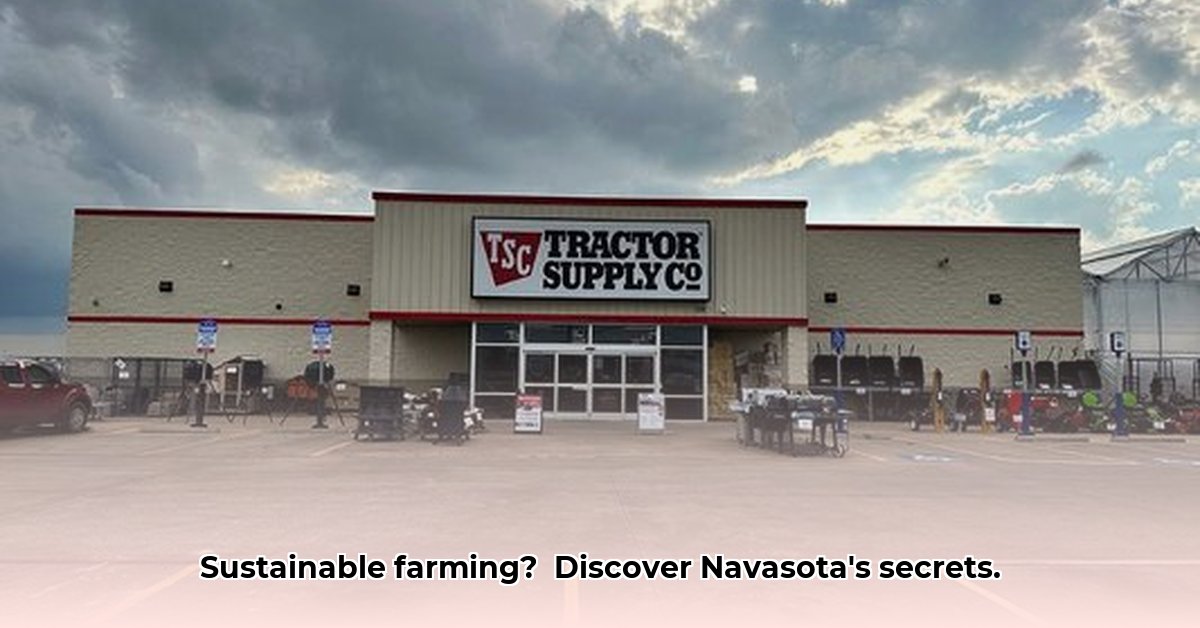
Understanding the Navasota Market: A Diverse Landscape
Navasota Tractor Supply (NTS) serves a diverse clientele, encompassing small-scale farmers, backyard gardeners, and pet owners. This market presents both opportunities and challenges. The increasing popularity of sustainable agriculture creates significant potential for growth, but NTS must navigate competitive pressures and evolving consumer preferences. The local farmers' market provides a complementary source for locally grown, often sustainably produced, goods, yet the integration between the Farmers' Market and NTS could be significantly improved. How can NTS effectively leverage this diverse market to expand its presence within the sustainable agriculture sector? For precise application, consider using GPS technology.
TSC's Strengths and Weaknesses: A Balanced Perspective
NTS possesses several key strengths. Its convenient location ensures easy accessibility for customers. The store's broad product range, from livestock feed to gardening tools, provides a one-stop shop for various needs. The knowledgeable staff offers valuable advice, fostering customer loyalty. However, opportunities for improvement exist. A more robust online presence, including a user-friendly website and e-commerce capabilities, would broaden its reach. Furthermore, expanding the selection of organic and sustainable farming products would directly address the growing market demand for eco-friendly options. This would greatly strengthen its position within the sustainable agriculture niche. How can NTS use its strengths to mitigate its weaknesses and capitalize on this growing demand?
Opportunities and Threats: Navigating the Future
Several opportunities exist for NTS to expand within the sustainable agriculture market. Expanding its organic and sustainable product lines, including organic seeds, fertilizers, and pest control options, would attract a key demographic of environmentally conscious consumers. Strategic partnerships with local farmers and organizations to offer workshops and educational programs would not only strengthen community ties but also position NTS as a leader in sustainable practices. Improving the online shopping experience would enhance accessibility and convenience, widening its customer base. However, significant threats exist. The competitive landscape is dynamic, with new entrants constantly challenging existing businesses. Supply chain disruptions pose a significant risk, impacting product availability. Changing consumer preferences require NTS to innovate and adapt constantly. How can NTS proactively address these threats and leverage market opportunities to maintain a competitive edge?
Actionable Recommendations: A Roadmap for Success
To achieve sustainable growth, NTS should implement strategic actions tailored to different stakeholder groups:
| Stakeholder Group | Short-Term Actions | Long-Term Strategies |
|---|---|---|
| TSC Management | Conduct a comprehensive market analysis, focusing on sustainable agriculture trends in Navasota. Invest in a user-friendly website and e-commerce platform. | Develop a comprehensive long-term sustainability plan; explore partnerships with organic suppliers and manufacturers; invest in employee training on sustainable agriculture. |
| Local Farmers | Offer discounted products and loyalty programs specifically for farmers; organize regular workshops on sustainable farming techniques. | Create a farmer advisory board to gather feedback and guide product development; explore options for bulk purchasing and cooperative agreements. |
| Consumers (Gardeners) | Offer workshops and classes on sustainable gardening; develop an online resource library on sustainable gardening practices. | Create a loyalty program incentivizing repeat purchases of sustainable products; collaborate with local organizations to promote community gardening. |
Conclusion: Embracing a Sustainable Future
Navasota Tractor Supply holds a unique position to become a leader in sustainable agriculture solutions within the Navasota community. By implementing the recommendations outlined above, NTS can enhance its market share and contribute significantly to environmentally conscious agricultural practices. Proactive responses to market demands, strong community engagement, and innovative business strategies will determine its future success. The potential for growth is substantial; the future of NTS is contingent on its ability to effectively seize this opportunity and embrace sustainability.